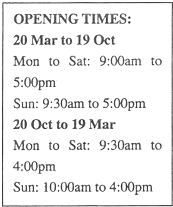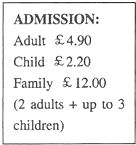题目内容
2.People select news in expectation of a reward.This reward may be either of two kinds.One isrelated to what Freud calls the Pleasure Principle,the other to what he calls the Reality Principle.For want of better names,we shall call these two classes immediate reward and delayed reward.In general,the kind of news which may be expected to give immediate reward are news of crime and corruption,accidents and disasters,sports,social events,and human interest.Delayed reward may be expected from news of public affairs,economic matters,social problems,science,education,and health.News of the first kind pays its rewards at once.A reader can enjoy an indirect experiencewithout any of the dangers or stresses involved.He can tremble wildly at an axe-murder,shake hishead sympathetically and safely at a hurricane,identify himself with the winning team,laugh understandingly at a warm little story of children or dogs.News of the second kind,however,pays its rewards later.It sometimes requires the reader totolerate unpleasantness or annoyance-as,for example,when he reads of the threatening foreign situation,the mounting national debt,rising taxes,falling market,scarce housing,and cancer.It has a kind of"threat value."It is read so that the reader may be informed and prepared.When a reader selects delayed reward news,he pulls himself into the world of surrounding reality to which he can adapt himself only by hard work.When he selects news of the other kind,he usually withdraws from the world of threatening reality toward the dream world.
For any individual,of course,the boundaries of these two classes are not stable.For example,asociologist may read news of crime as a social problem,rather than for its immediate reward.Acoach may read a sports story for its threat value:he may have to play that team next week.Apolitician may read an account of his latest successful public meeting,not for its delayed reward,but very much as his wife reads an account of a party.In any given story of corruption or disaster,a thoughtful reader may receive not only the immediate reward of indirect experience,but also the delayed reward of information and preparedness.Therefore,while the division of categories holds in general,an individual's tendency may transfer any story from one kind of reading to another,ordivide the experience between the two kinds of reward.
| What news stories do you read? | |
| Division of news stories | •People expect to get (71)rewards/rewardedfrom reading news. •News stories are roughly divided into two classes. •Some news will excite their readers instantly while others won't. |
| (72)Explanationsof the two classes | •News of immediate reward will seemingly take their readers to the very frightening scene without actual (73)involvement. •Readers will associate themselves closely with what happens in the news stories and (74)sharesimilar feelings with those involved. |
| •News of delayed reward will make readers suffer,or present a(75)threatto them. •News of delayed reward will induce the reader to (76)preparefor the reality while news of immediate reward will lead the reader to (77)withdraw from the reality. | |
| Unstable boundaries of the two classes | What readers expect from news stories are largely shaped by their (78)profession(s)/intention. Serious readers will both get excited over what happens in some news stories and (79)adapt themselves to the reality. Thus,the division,on the whole,(80)dependson the reader. |
分析 本文为说明文,主要介绍了人们选择浏览新闻时的价值取向,分析了不同人群对新闻报道的接受习惯和反应特征,从新闻类别、读者反映、异类互渗等角度.
解答 71.rewards/rewarded 直接信息题 根据文章首句"People select news in expectation of a reward"可知,空处可填reward的名词形式,因此这里可以填rewards;同时它还是动词,"get rewarded"可以用来表示被动意义,因此空处还可填reward的,故答案为rewards/rewarded.
72.Explanations 信息概括题 文章的第二、三、四段都是对于两种取向的解释,因此本题答案为Explanations.
73.involvement 信息转换题 根据第三段中的"A reader can enjoy an indirect reward without any of the dangers or stresses involved"可知,读者不要真正参在其中,故本空应填名词involvement.
74.share 信息概括题 根据第三段内容可知,读者的反应与亲身经历的感受一致,因此读者共享了他们的体验."share…with…和…分享",因此应填share.
75.threat 直接信息题 根据第四段内容,尤其是"It has a kind of‘threat value'"可知,本题应填threat.
76.prepare 信息转换题 根据第四段内容,尤其是"the reader may be informed and prepared"可知,本题应填prepare.
77.withdraw 直接信息题 根据第四段最后一句"When he selects news of thenews of the other kind,和usually withdraw from the world of threatening reality toward the dream world"可知,本题应填withdraw.
78.profession(s)/intention 信息转换题 根据最后一段中不同职业的人阅读新闻时的不同意图可知,本题应填profession(s)/intention.
79.adapt 信息转换题 根据最后一段中的"a thoughtful reader may receive not only…but also the delayed reward of information and preparedness"可知,他们不但获取了信息,而且还会做准备以便能够更好地去适应现实."adapt oneself to 使自己适应",因此本空填adapt.
80.depends 信息概括题 可以看出本句是对文章大意的总结,综合文章所述,不难得出这样的结论:阅读新闻的取向取决于读者本人,因此本空填depends.
点评 本题考查任务型阅读.解答这类题时:注意表格前的小标题,它通常是段落和表格的主题句,有助于理解文章,理解表格设计,表格一般包括列标题和行标题,通过阅读这些标题和表格内容,迅速了解表格的结构和表格的设计原理,同时也可缩小信息范围,确定考查内容.根据已填的内容来推断所填之词的形式,填写答案时注意工整对称性,要注意与已填部分的形式保持一致,注意时态、语态、句式等避免出现错误.

| A. | allow | B. | knowledge | C. | throw | D. | power |
His friend's main(19)interestin life seemed to be tennis.He was an excellent tennis player,and he(20)evenhad his own tennis court(网球场).There were a lot of people with swimming (21)pools,but there were only two people with private tennis court; his friend in Chicago was one of them.I told him that I knew several(22)playerslike that,including my brother,who was doctor in California.He(23)admittedthat maybe there were more private courts in the country,than he(24)realizedbut he did not know of any others.Then he asked me(25)wheremy brother lived in California.When I said Sacramento,he said that was a coincidence (巧合)(26)becausehis Chicago friend spent the summer in Sacramento last year and he lived next door to a (27)doctorwho had a tennis court in his backyard.I said I felt that really was a coincidence because my next-door neighbor had gone to Sacramento last summer and had (28)hiredthe house next to my brother's house.For a moment,we stared at each other,but we did not say anything.
"Would your friend's name happen to be Roland Kirkwood?"I asked finally.He(29)laughedand said,"Yes.Would your brother's name happen to be Dr Rey Hunter?"It was my(30)turnto laugh."Yes."I replied.
| 11.A.brother | B.teacher | C.neighbor | D.friend |
| 12.A.managed | B.happened | C.tried | D.wanted |
| 13.A.expecting | B.lying | C.joking | D.talking |
| 14.A.funny | B.serious | C.careful | D.disappointed |
| 15.A.think | B.find | C.realize | D.see |
| 16.A.indeed | B.actually | C.instead | D.exactly |
| 17.A.famous | B.interesting | C.noisy | D.big |
| 18.A.began | B.stopped | C.refused | D.failed |
| 19.A.problem | B.interest | C.choice | D.chance |
| 20.A.just | B.ever | C.even | D.surely |
| 21.A.suit | B.habit | C.pools | D.river |
| 22.A.people | B.players | C.strangers | D.friends |
| 23.A.advised | B.argued | C.admitted | D.admired |
| 24.A.recognized | B.realized | C.visited | D.found |
| 25.A.how | B.whether | C.when | D.where |
| 26.A.because | B.if | C.then | D.though |
| 27.A.doctor | B.friend | C.neighbor | D.player |
| 28.A.hired | B.visited | C.designed | D.sold |
| 29.A.smiled | B.laughed | C.cried | D.nodded |
| 30.A.chance | B.pleasure | C.time | D.turn |
| A. | preserved | B. | protected | C. | spread | D. | developed |
| A. | apology | B. | another | C. | remote | D. | copy |

 The Birthplace is within easy walking distance of all the car parks shown on the map; nearest is Windsor Street(3minutes'Walk).
The Birthplace is within easy walking distance of all the car parks shown on the map; nearest is Windsor Street(3minutes'Walk).